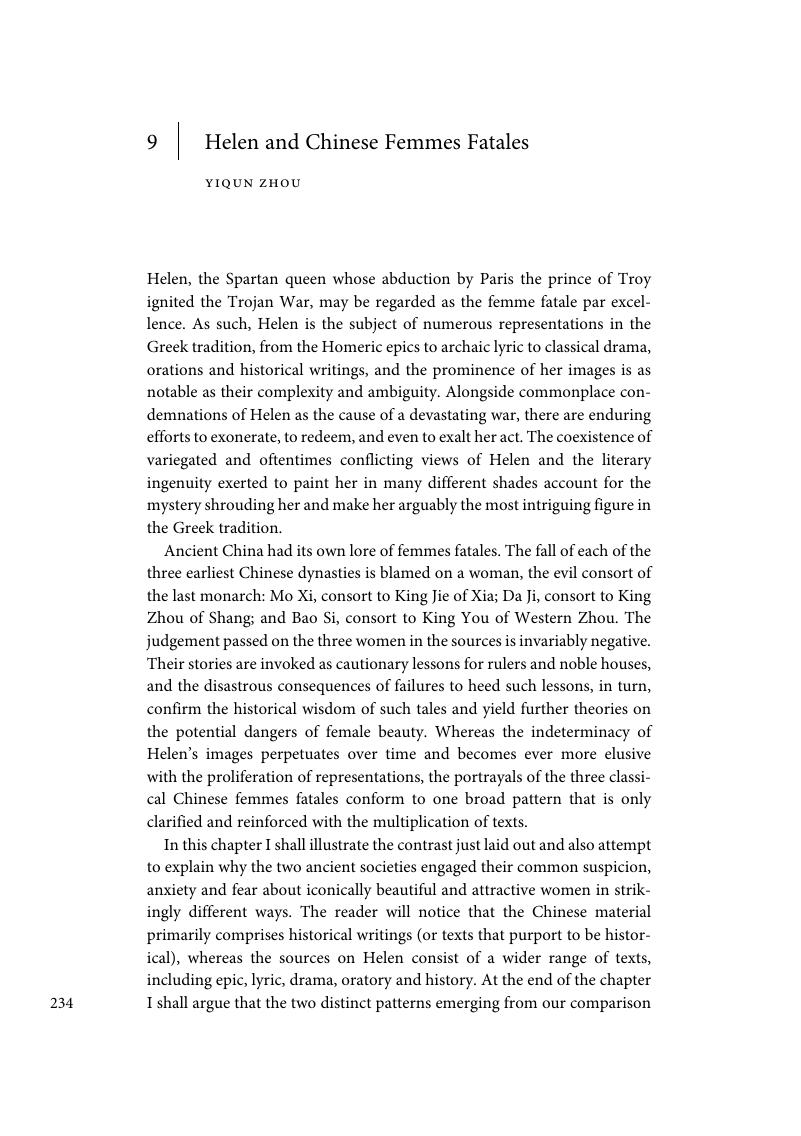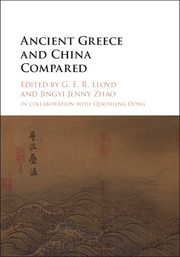Book contents
- Ancient Greece and China Compared
- Ancient Greece and China Compared
- Copyright page
- Contents
- Figures
- Acknowledgements
- Notes on Editions
- Contributors
- Introduction: Methods, Problems and Prospects
- Part I Methodological Issues and Goals
- Part II Philosophy and Religion
- Part III Art and Literature
- 8 Visual Art and Historical Representation in Ancient Greece and China
- 9 Helen and Chinese Femmes Fatales
- Part IV Mathematics and Life Sciences
- Part V Agriculture, Planning and Institutions
- Afterword
- Index
- References
9 - Helen and Chinese Femmes Fatales
from Part III - Art and Literature
Published online by Cambridge University Press: 21 December 2017
- Ancient Greece and China Compared
- Ancient Greece and China Compared
- Copyright page
- Contents
- Figures
- Acknowledgements
- Notes on Editions
- Contributors
- Introduction: Methods, Problems and Prospects
- Part I Methodological Issues and Goals
- Part II Philosophy and Religion
- Part III Art and Literature
- 8 Visual Art and Historical Representation in Ancient Greece and China
- 9 Helen and Chinese Femmes Fatales
- Part IV Mathematics and Life Sciences
- Part V Agriculture, Planning and Institutions
- Afterword
- Index
- References
Summary

- Type
- Chapter
- Information
- Ancient Greece and China Compared , pp. 234 - 256Publisher: Cambridge University PressPrint publication year: 2018
References
Primary Sources
Secondary Sources
- 1
- Cited by

